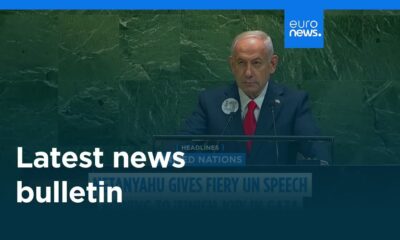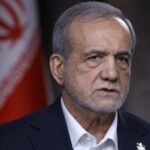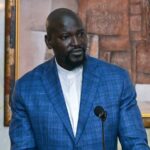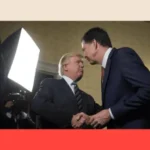EU Affairs
These stadiums expose Putin’s brutal war on Ukrainian culture
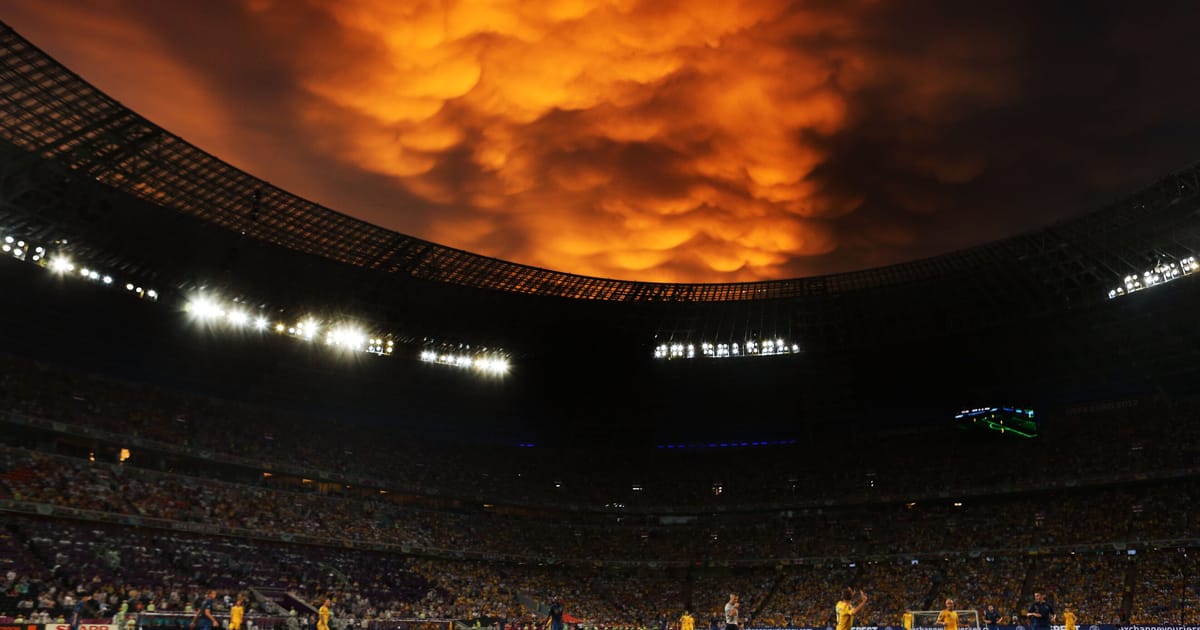
Read more on post.
Before Vladimir Putin’s invading forces came swarming over the border, eastern Ukraine was the country’s beating heart of sports.
Now, that has been all but wiped out in a trail of devastation.
Moscow’s attempt to extinguish Ukrainian culture can be seen through the prism of prominent stadiums across the region, one of which even played host to footballers including Cristiano Ronaldo and Xavi, and pop megastars such as Beyoncé and Rihanna.
In several cities, gleaming sporting and cultural landmarks now resemble haunting, silent scenes from a zombie apocalypse movie. And on the Crimean Peninsula, illegally occupied by Russia since 2014, there’s another story: The repurposing of Ukrainian arenas as stages to further the Kremlin’s narrative.
Advertisement
“Aggressors deliberately try to destroy normal life and erase collective identity,” Glenn Micallef, European commissioner for culture and sport, told POLITICO. “Sport is essential in forming identity, and that is what the Russian aggressor wants to erase.” He warned that sporting federations “must ensure no platform for propaganda is provided.”
From Donetsk to Mariupol, and Luhansk to Crimea, POLITICO traced the fate of Ukraine’s sports and cultural facilities under Russian occupation to reveal the depth of Moscow’s war on its neighbor’s culture.
Donbas Arena, Donetsk
On Aug. 29, Donetsk’s once-glittering Donbas Arena turned 16. For 11 of those years, it has stood in Russian-occupied territory — abandoned, damaged and stripped of its original purpose.
Opened in 2009 by Shakhtar Donetsk’s billionaire owner Rinat Akhmetov, the $400 million stadium was Ukraine’s first officially “elite” European football arena. With a capacity of 52,000, it hosted Euro 2012 matches, Champions League games featuring iconic clubs like Barcelona and Juventus, and concerts by Beyoncé and Rihanna.
For a brief moment, it symbolized Ukraine’s ambition to join Europe’s sporting elite.
That era abruptly ended in 2014, when Russia’s war in the Donbas forced Shakhtar to flee. The stadium was shelled and its glass façade shattered, and later seized by Russian-backed militants. In a symbolic gesture of Russification, they even replaced the Ukrainian “a” in Shakhtar’s name with the Russian “e,” making it Shakhter, as they set up a new club from scratch.
“I had fought in many stadiums,” American boxer Paulie Malignaggi told POLITICO. He defeated Ukraine’s Vyacheslav Senchenko there in 2012 to claim the WBA welterweight title. “But this one stood out as the most modern and impressive. Everything was state-of-the-art — comfortable dressing rooms, sleek facilities and even a space for hosting after-parties. That fight was one of the defining moments of my career. The memories are bittersweet now.”
Volodymyr Boyko Stadium, Mariupol
After Russia’s lethal occupation of Mariupol in 2022, the city’s main stadium fell into the hands of an armed unit known as Española, formed from Russian football hooligans.
Videos released in May 2023 showed militants in Russian uniforms firing weapons and waving Soviet and Russian flags from the stands.
The arena, which had installed Ukraine’s most advanced hybrid turf in 2021, now lies in ruins. Its main stand is riddled with shell damage and the pitch withered away without water during the summer of 2022, amid some of Russia’s most ferocious military bombardment of the entire war.
Mariupol’s other sports facilities shared the same fate. The club’s training base was bulldozed and replaced by a Russian military academy. The Illichivets indoor sports complex, once the pride of the region, sustained dozens of direct hits from Russian shells and mortars. Its artificial turf field, installed in 2018, is almost completely destroyed — while the unique membrane roof and glass façade now require massive reconstruction.
Behind Moscow’s glossy propaganda selling Mariupol as a “new haven” for Russian settlers, locals see only ruined homes and the wreckage of their city’s sporting soul.
Advertisement
Avanhard Stadium, Luhansk
The Avanhard Stadium was once the pride and joy of Luhansk — and it has, for me, a uniquely personal connection.
It was here that Zorya made history in 1972, becoming one of only three teams not from a capital city ever to win the Soviet Union’s football championship. After independence in 1991, the club clawed its way up from the lower leagues in Ukraine to European competition and, when Zorya returned to the top flight, the 22,000-seat stadium was always packed.
Growing up in Luhansk in the 1990s and early 2000s, I remember standing in line with my father for hours, hoping to get tickets for our beloved 6th sector. The game was a fortnightly highlight, and a special connection with my dad. Luhansk also had a deep reverence for the team; everyone knew the players and greeted them on the streets.
And when the final whistle blew, the song “Luhanshchyna” filled the stadium, celebrating the region’s landscapes, history, hospitality and beauty. The tradition followed the team to Zaporizhzhia when it moved after the initial 2014 invasion, but there the song sounded different — a reminder to Zorya supporters that they may never again gather at their true home ground. Today, in a cruel twist, that same song is used by the separatists for their own celebrations, stripping it of the meaning it once held for the club and its fans.
“Even in the first league [the second division], we never had fewer than 8,000 fans,” Zorya legend Nikita Kamenyuka told POLITICO. “When we played Karpaty Lviv, 18,000 came. It was incredible. Playing in Luhansk gave us energy.”
In 2014, just after a renovation, Avanhard was shelled, seized by the so-called Luhansk People’s Republic backed by Putin, and abandoned. Propaganda concerts and matches played by a fake Zorya appeared.
Today, on the site where I have so many family ties and memories, its steps are crumbling, the traditionally yellow-blue seats are fading under the harsh sun and the athletic track around the pitch is cracking.
The Russians claim they will “renovate” it and make it better.
Lokomotiv Stadium, Crimea
Simferopol’s Lokomotiv Stadium, once home to Tavriya — Ukraine’s first national football champion after independence — has faced a strange fate since Russia’s occupation of Crimea.
Closed for seven years, it underwent a costly “reconstruction” before reopening in 2021 as a so-called training center for Crimean teams.
In 2025, it hosted a match between the “national teams” of occupied Crimea and the self-proclaimed Donetsk “republic.” The exhibition match, held as part of the “Day of Russia” celebrations, took place before a sparse crowd. Players entered the field under Russian and DPR flags, overseen by FIFA referee Yuri Vaks of Simferopol, who served as a Ukrainian league official until 2017.
Tavriya’s training base near Bakhchysarai lies abandoned, while other Crimean stadiums illegally host Russian league games, defying international football rules.
“Holding matches by Russia in temporarily occupied Crimea is a blatant violation of international law and yet another manifestation of Russian hybrid aggression. Matches in stadiums that Russia seized along with our land are an attempt to make it seem as if nothing has happened. But it has,” Matviy Bidny, Ukraine’s minister of youth and sports, told POLITICO.
“Every game under the Russian flag — anywhere, but especially in Ukrainian Crimea — is an attempt to whitewash a crime,” he added.
Advertisement
EU Affairs
Britain’s Keir Starmer, under friendly fire, tries to hoist his flag
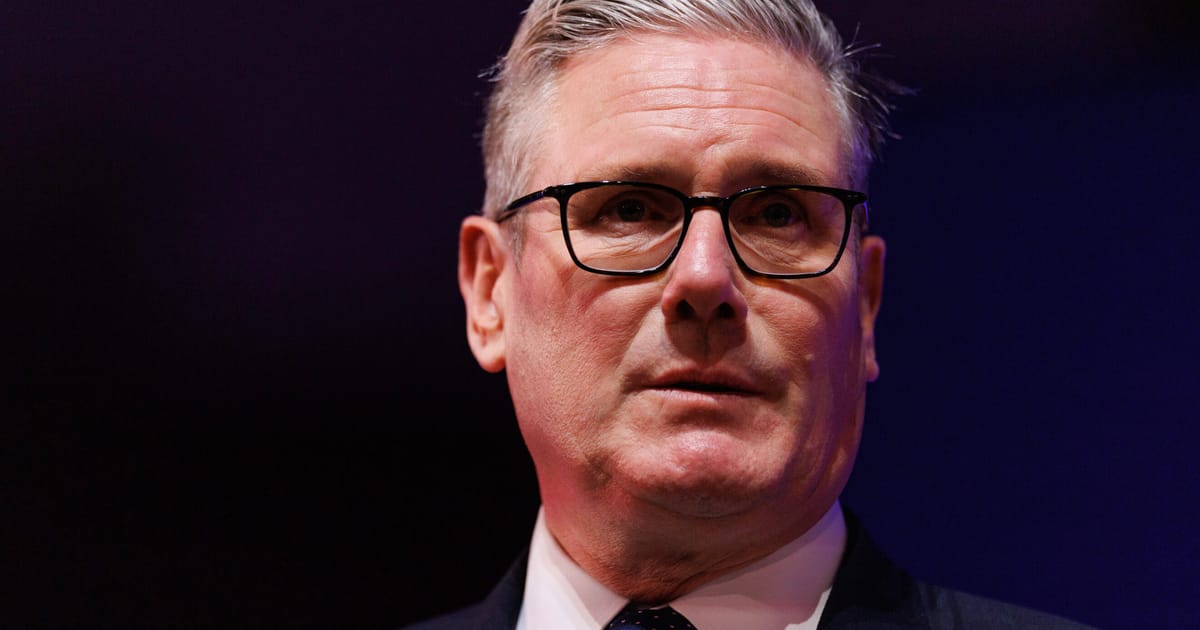
Read more on post.
More policy reveals are expected at the conference ahead of the PM’s keynote speech Tuesday, including on infrastructure and health, senior officials familiar with his thinking told POLITICO.
Yet many of Starmer’s own MPs and ministers are arriving in Liverpool doubtful it will turn the tide of public frustration with Labour.
Starmer won a 174-seat majority in July 2024, yet his administration has been beset by scandals, revamps and resignations of his most trusted aides. Tricky economic decisions have angered pensioners, businesses, farmers and the aid sector. Starmer’s team is already braced for two crisis points — a tax-raising budget on Nov. 26, and Scottish and Welsh elections in May 2026, after which many of his MPs believe he could face a leadership challenge.
A YouGov poll Friday projected Nigel Farage’s populist Reform UK to win 311 seats in a general election (up from five now and just short of a majority), to 144 for Labour. Andy Burnham, the Labour mayor of Greater Manchester who has called for more state spending and wealth taxes, is openly touting himself as Starmer’s successor — his brooding headshot filling the cover of this week’s center-left New Statesman magazine.
In conversations with POLITICO, more than a dozen MPs and officials, granted anonymity so they could speak frankly, revealed a grim mood heading into what is supposed to be a celebratory week in Liverpool.
“I’m gobsmacked that we are in this position 14 months after getting into government, after 14 years in opposition,” said one government minister. “People hate us. It feels like we’ve lost the public.”
EU Affairs
World’s cartoonists on this week’s events
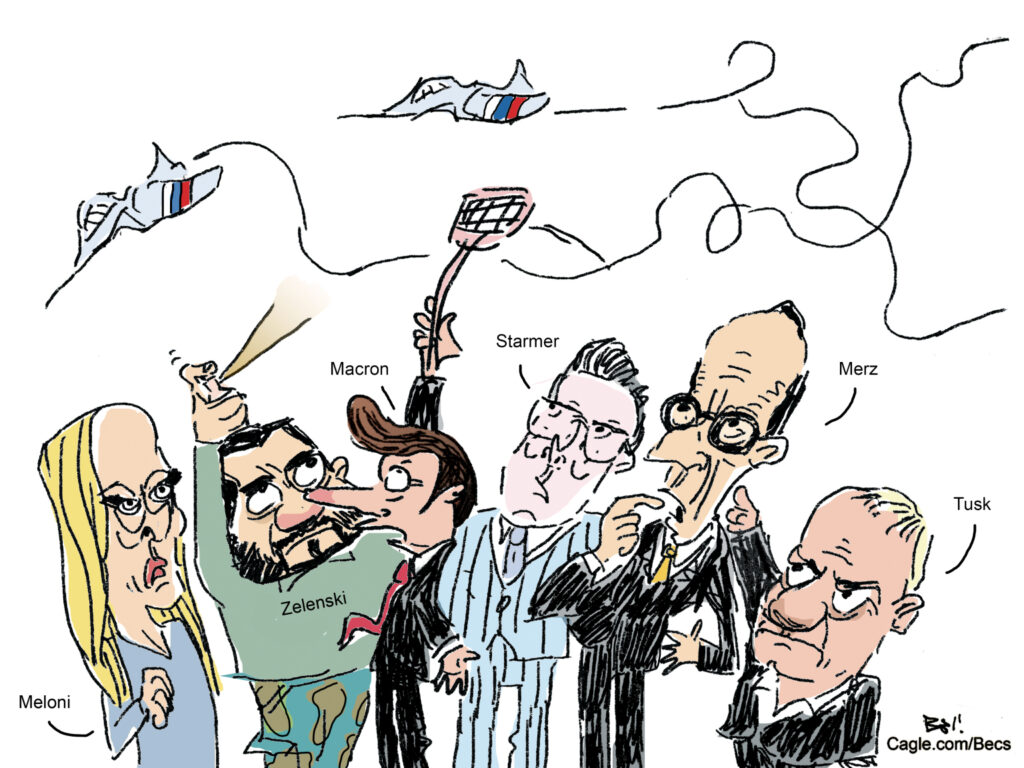
EU Affairs
Brussels eyes loophole to isolate Hungary, send billions in Russian assets to Ukraine
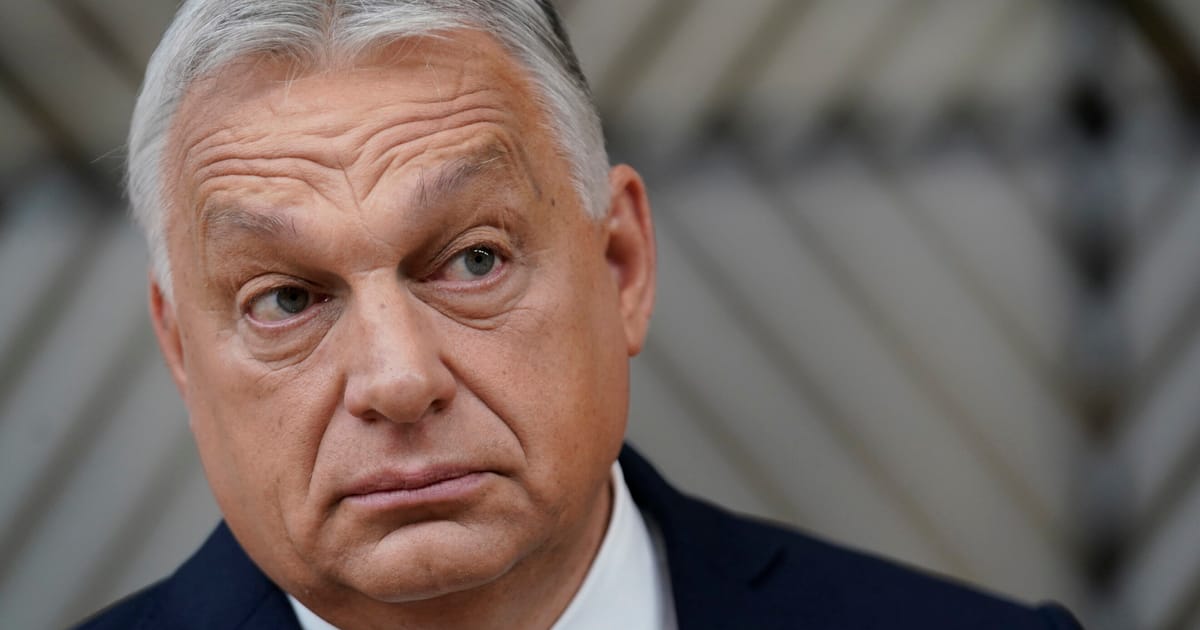
Read more on post.
Four people briefed on the plans told POLITICO the Commission is hoping to base its action on a set of European Council conclusions that all EU leaders, including Orbán, agreed to on Dec. 19 last year.
In that statement, the leaders declared: “Russia’s assets should remain immobilised until Russia ceases its war of aggression against Ukraine and compensates it for the damage caused by this war.” At the time, that statement had largely been understood to mean the assets themselves should remain frozen, mainly at Euroclear bank in Belgium, and not accessed by Russia, while interest could be used for the war effort.
The Commission’s new argument is that this statement provides sufficient cover to change the sanctions rules from unanimity to a qualified majority. For that to work, all or most of the other countries would have to agree.
“This would require a high-level political agreement by all or most Heads of State or Government,” the Commission said in a note to EU ambassadors meeting on Friday.
Not just Hungary
Winning that broader agreement will not be easy. There are other Russia-friendly nations in the potential mix, such as Slovakia.
Then there’s the Belgium problem. The Belgian government has already pushed back amid concerns that the EU’s cash grab could expose Belgium and Euroclear, a financial institution that houses Russia’s frozen state assets, to legal retaliation from Moscow.
-
Culture3 weeks ago
Life, loss, fame & family – the IFI Documentary Festival in focus
-
Politics4 days ago
European Parliament snubs Orbán with vote to shield Italian MEP from Hungarian arrest
-
Culture2 months ago
Fatal, flashy and indecent – the movies of Adrian Lyne revisited
-
Environment1 week ago
Key oceans treaty crosses threshold to come into force
-
Health5 days ago
EU renews support for WHO’s Universal Health Coverage Partnership
-
Culture4 days ago
Twilight at 20: the many afterlives of Stephenie Meyer’s vampires
-
Culture1 week ago
Farewell, Sundance – how Robert Redford changed cinema forever
-
Culture4 weeks ago
What is KPop Demon Hunters, and why is everyone talking about it?


